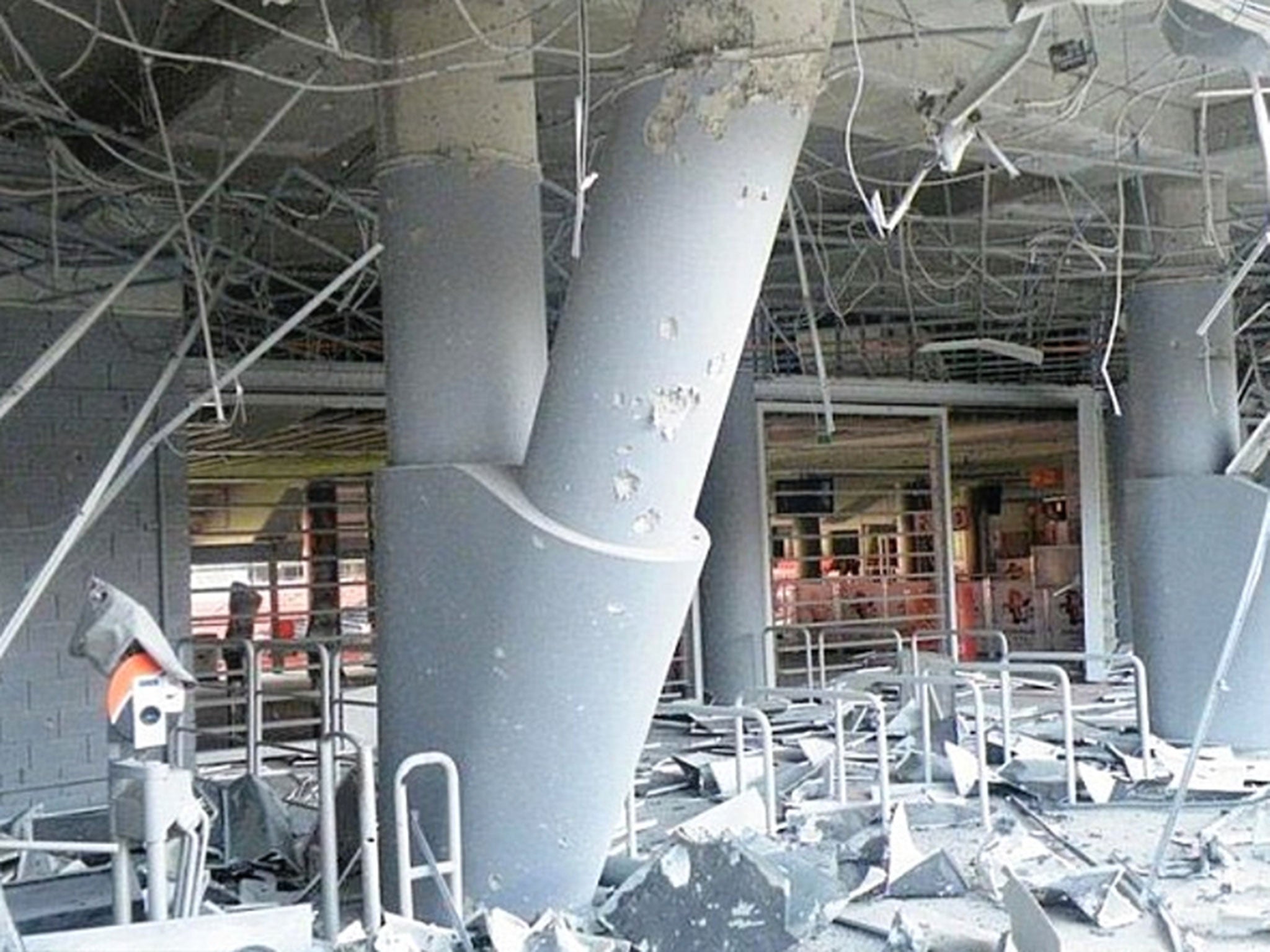Shakhtar vs Bayern Munich preview: Shakhtar, the proud beacon of a nation torn apart by strife
Tomorrow's game is being forced to take place 600 miles west of the Ukrainian team's war-torn home

Your support helps us to tell the story
From reproductive rights to climate change to Big Tech, The Independent is on the ground when the story is developing. Whether it's investigating the financials of Elon Musk's pro-Trump PAC or producing our latest documentary, 'The A Word', which shines a light on the American women fighting for reproductive rights, we know how important it is to parse out the facts from the messaging.
At such a critical moment in US history, we need reporters on the ground. Your donation allows us to keep sending journalists to speak to both sides of the story.
The Independent is trusted by Americans across the entire political spectrum. And unlike many other quality news outlets, we choose not to lock Americans out of our reporting and analysis with paywalls. We believe quality journalism should be available to everyone, paid for by those who can afford it.
Your support makes all the difference.Before tomorrow night’s match against Shakhtar Donetsk, which is being forced to take place 600 miles west of the Ukrainian team’s war-torn home, their opponents, Bayern Munich, are expected to make some sort of peace gesture. The endeavour, however, could hardly be more fraught with diplomatic peril.
For Russian money is not merely bankrolling the pro-Russian rebels in Donetsk, where Shakhtar’s gleaming, brand new home has now been shelled to near destruction, it also, via state commodities company Gazprom, bankrolls the Champions League.
A temporary ceasefire in Ukraine has recently been brokered by the German Chancellor Angela Merkel, and come the final she will be sitting in the VIP seats with the Gazprom bosses.
It is another complex facet of a complex conflict. Donetsk is in the Russian-speaking east of Ukraine and many of the club’s fans want it to do what the football teams in Crimea have done and withdraw from the domestic league and seek to join Russia’s football pyramid – even if Uefa would almost certainly not allow it.
Shakhtar have not played in the Donbass Arena, a grand dome built for Euro 2012, and where England played twice, since last May. A new airport was built for that tournament, too, the near total destruction of which has become arguably the most potent symbol of the civil war in the country.
In October last year, shocking CCTV pictures emerged of a little girl walking near to the stadium during shelling, when a huge sheet of glass falls from its sides and misses her by inches.
In their new home, the Ukrainian nationalist town of Lviv in a more pro-European area, many locals have been generous in their support. Shakhtar are eastern Europe’s sole representatives in the last 16 of the world’s biggest domestic football competition.
In so far as partisan, localised football fans ever unite beyond a cause wider than their own club, Shakhtar’s successes – driven chiefly by highly effective scouting networks in Brazil – have been a source of pride to the wider nation.
Last year, the team’s six Brazilian squad members refused to return home from a training trip in France, saying they were scared for their own safety, though some were more likely to have been positioning for transfers. The club’s players’ only semi-political statement on the matter has been a wish “for a united Ukraine”.
The team and their Romanian manager of 10 years, Mircea Lucescu, have not given up hope of returning home and follow developments closely, not least this most recent ceasefire.
Luiz Adriano, the team’s Brazilian star, and the tournament’s current top scorer, was linked with moves to Arsenal, Tottenham and Liverpool during the January transfer window but said: “It would be nice to have a new challenge but it would be even nicer to stay in Ukraine, at the club that I love.”
Join our commenting forum
Join thought-provoking conversations, follow other Independent readers and see their replies
Comments